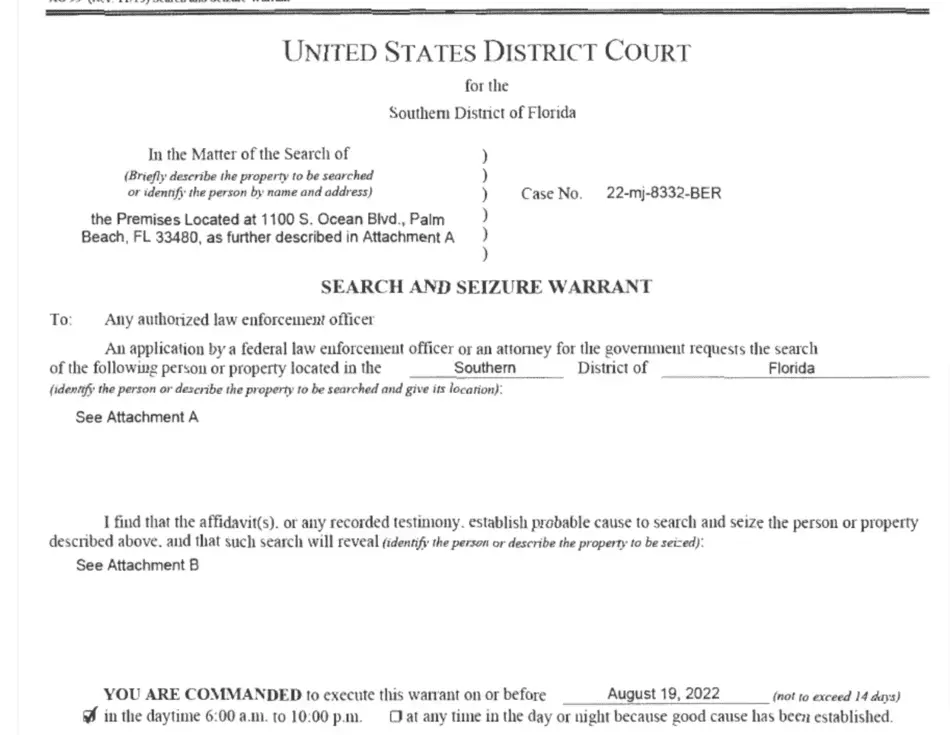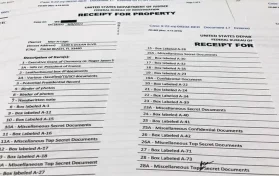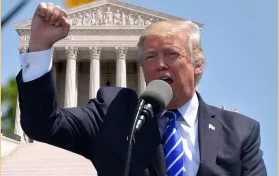
On Monday, Judge Bruce Reinhart, the magistrate who signed the warrant to search Mar-a-Lago, produced a filing that formally admits the August 8 search on the former president’s home is “unprecedented.” The filing also says that Reinhart “rejects the Government’s argument that the present record justifies keeping the entire Affidavit under seal.”
Reinhart’s filing reads: “The Government argues that even requiring it to redact portions of the Affidavit that could not reveal (agent) identities . . . imposes undue burden. . . I do not need to reach the question of whether . . . these concerns could justify denying public access; they very well might.”
Reinhart also pointed to the “intense public and historical interest in . . . (the) former President’s residence” as a reason to unseal the affidavit utilized to obtain the search warrant for Mar-a-Lago.
Reinhart’s filing is a follow-up to the ruling he made last Thursday that said the Justice Department had not met the burden of proof that unsealing the affidavit could be damaging to their case.
Reinhart had said on Thursday that the Justice Department’s attorneys have until August 25 to file with the court the proposed redactions as long with justifications for each redaction. Reinhart will then review the proposed redactions. He will then file an order stating whether he agrees with the redactions, and the process for releasing the redacted document will begin.
However, if the judge disagrees with the proposed redactions, then he will write an order stating his disagreement and why. This does not mean the completely unredacted affidavit will then be released. Judge Reinhart has said that he will allow for the Justice Department to appeal his decision. This could take months to complete.
So, while Judge Reinhart believes that the affidavit should be unsealed (with some redactions), as legal scholar Jonathan Turley said last week, it is possible the affidavit is not released to the public for some time – if ever.
There is also the possibility that Reinhart could perform his own redactions.
Reinhart’s ruling also allows for the media – who brought the suit forward – to disagree with the proposed redactions. Again, any appeal could take months to complete.
The lead prosecutor for the federal government, Jay Bratt, told the court last week that due to the volatile state of the country, setting a precedent for releasing the names of witnesses would “chill other witnesses who may still come forward.”
Charles Tobin, an attorney arguing for the release of the affidavit on behalf of The Washington Post, told the Court on Thursday, “Public interest could not be greater.”
On Thursday, Judge Reinhart did unseal the application for the warrant as well as any cover sheets used as a part of obtaining a search warrant.
The application read that the government’s “basis for the search was evidence of a crime” as well as “contraband, traits of crime, or other items illegally possessed.”
The FBI agents carrying out the search seized at least eleven boxes, some of which were labeled “top secret” or “classified.” President Trump has argued that he had already declassified those documents. Other items taken included a letter between President Trump and North Korea’s Kim Jong-un, a letter from Barack Obama to his successor, and a cocktail napkin.
An August 11 story from The Washington Post cited anonymous sources who inferred the FBI agents were looking for documents relating to nuclear secrets. The article further said, however, that the sources did not confirm these documents: “(sources) offer additional details about what type of information the agents were seeking, including whether it involved weapons belonging to the United States or some other nation. Nor did they say if such documents were recovered as part of the search.”
To date, there has been no formal announcement of the finding of such material.
While the property receipt from the search does list numerous sets of top secret or confidential documents, the paperwork does not reveal anything specific about those items seized.





